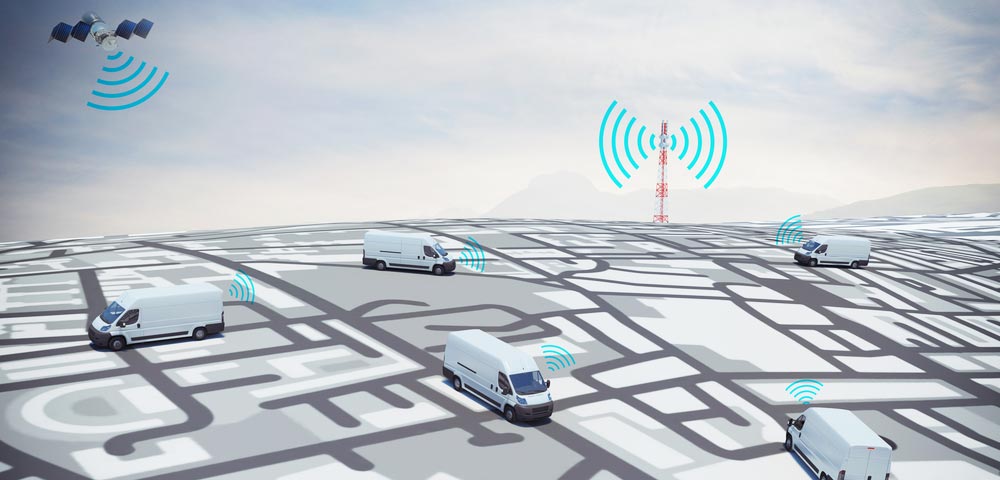Global Positioning System (GPS) technology has become an indispensable tool in modern fleet management. It revolutionizes the way businesses monitor and manage their vehicles, enhancing efficiency, safety, and cost-effectiveness. GPS fleet tracking involves the use of GPS devices installed in vehicles to provide real-time data on their location, speed, and other operational metrics. This article explores the evolution, functionality, benefits, and future trends of GPS fleet tracking.
Evolution of GPS Fleet Tracking
The origins of GPS technology trace back to the 1960s when the U.S. Department of Defense initiated the development of a satellite-based navigation system. By the 1980s, GPS became available for civilian use, and it didn’t take long for businesses to recognize its potential in fleet management. Early adopters used GPS primarily for basic tracking purposes, but technological advancements have significantly expanded their capabilities.
The integration of telematics—a combination of telecommunications and informatics—has been a game-changer. Telematics allows for the collection and transmission of a wide array of data from vehicles, including fuel consumption, engine diagnostics, and driver behavior. This data is then analyzed to optimize fleet operations, reduce costs, and improve safety.
How GPS Fleet Tracking Works
GPS fleet tracking systems consist of three main components: GPS devices, communication networks, and fleet management software.
- GPS Devices: These are installed in each vehicle and receive signals from GPS satellites to determine precise location coordinates. Modern devices often come with additional sensors to capture various vehicle metrics.
- Communication Networks: The data collected by GPS devices is transmitted via cellular or satellite networks to a central server. This transmission can occur in real-time or at regular intervals, depending on the system configuration.
- Fleet Management Software: The software aggregates and analyzes the data, presenting it in an accessible format through dashboards and reports. Managers can monitor vehicle locations, route histories, maintenance needs, and driver performance from a single platform.
Benefits of GPS Fleet Tracking
- Improved Efficiency and Productivity: Real-time tracking solutions enable managers to optimize routes, reducing travel time and fuel consumption. It helps in avoiding traffic congestion and identifying the shortest and fastest routes, thereby improving overall efficiency.
- Enhanced Safety: Monitoring driver behavior through GPS tracking can significantly enhance safety. Managers can receive alerts about speeding, harsh braking, and other unsafe driving practices, allowing them to take corrective actions. Additionally, GPS tracking helps in quick response during emergencies by providing accurate vehicle locations.
- Cost Savings: Fuel is one of the largest expenses in fleet management. GPS tracking helps in reducing fuel costs by optimizing routes and minimizing idle times. Maintenance costs are also lowered through timely reminders and monitoring of vehicle health.
- Better Customer Service: Accurate tracking allows businesses to provide precise delivery times to customers. In case of delays, customers can be informed proactively, improving service reliability and customer satisfaction.
- Regulatory Compliance: Many industries are subject to regulations regarding driver working hours, vehicle maintenance, and safety standards. GPS tracking systems can help ensure compliance by providing necessary documentation and alerts.
Industry Applications
GPS fleet tracking is utilized across various industries, each benefiting uniquely from the technology:
- Logistics and Transportation: Companies can manage large fleets, ensuring timely deliveries and efficient route planning.
- Public Transportation: GPS tracking enhances the reliability and safety of buses and trains, providing real-time information to passengers.
- Construction: Managing heavy machinery and vehicles on construction sites becomes more efficient with GPS tracking, ensuring equipment is used optimally and safely.
- Emergency Services: Ambulances, fire trucks, and police vehicles use GPS tracking to respond swiftly to emergencies, significantly reducing response times.
- Utilities and Services: Companies providing repair and maintenance services can manage their workforce more effectively, ensuring quick and efficient service delivery.
Future Trends in GPS Fleet Tracking
The future of GPS fleet tracking looks promising with several emerging trends:
- Integration with Artificial Intelligence (AI): AI can enhance data analysis, providing deeper insights and predictive capabilities. For instance, AI can predict maintenance needs based on usage patterns, preventing breakdowns and reducing downtime.
- Internet of Things (IoT) Integration: IoT devices can provide additional data points, such as temperature, humidity, and cargo status, offering a more comprehensive view of fleet operations.
- Electric and Autonomous Vehicles: As the adoption of electric and autonomous vehicles grows, GPS fleet tracking will evolve to address the unique needs of these technologies, such as charging station locations and autonomous route planning.
- Enhanced Cybersecurity: With the increasing reliance on data, ensuring the security of fleet tracking systems will be paramount. Future systems will incorporate advanced encryption and security protocols to protect sensitive information.
- Advanced Analytics and Reporting: The development of more sophisticated analytics tools will allow fleet managers to derive actionable insights from data, improving decision-making processes.
Conclusion
GPS fleet tracking has transformed the landscape of fleet management, offering significant benefits in terms of efficiency, safety, and cost savings. As technology continues to evolve, the capabilities of GPS tracking systems will expand further, providing even greater value to businesses. Embracing these advancements will be crucial for companies aiming to stay competitive in an increasingly dynamic and data-driven world.


